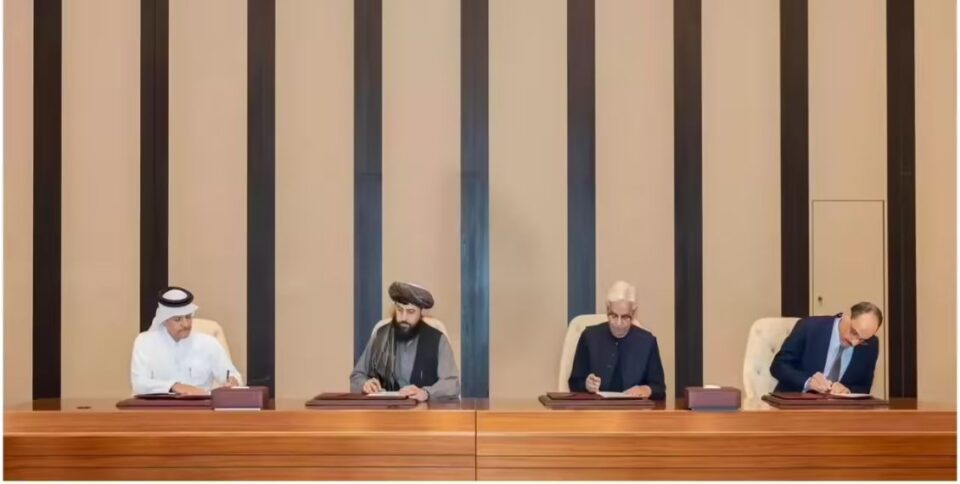ISLAMABAD/KABUL: (Oct 31) Pakistan and Afghanistan have agreed to extend their temporary ceasefire and will hold another round of peace talks in Istanbul on November 6, in an effort to de-escalate tensions following the region’s worst cross-border violence since the Taliban’s return to power in 2021.
The announcement came late Thursday after Türkiye and Qatar helped salvage the fragile truce, just a day after Islamabad declared the previous talks had collapsed.
“All parties have agreed on continuation of ceasefire,” Türkiye’s Foreign Ministry said in a statement, adding that a joint monitoring mechanism will be established to penalise any violations and maintain peace along the border.
The deadly clashes earlier this month — which followed a series of explosions in Kabul on October 9, blamed by Taliban authorities on Pakistan — left more than 70 people dead and hundreds injured.
Afghan Taliban spokesman Zabihullah Mujahid said on Friday that the Istanbul talks concluded with an understanding that “both sides will meet again and discuss the remaining issues.”
“The Islamic Emirate seeks good relations with all neighbouring countries, including Pakistan, and remains committed to relations based on mutual respect, non-interference, and not posing threats to any side,” Mujahid said on X.
Pakistan’s Foreign Ministry confirmed the truce extension on Friday. “The ceasefire holds. We have taken note of assurances from the Afghan side on this issue,” ministry spokesperson Tahir Andrabi told reporters in Islamabad.
Andrabi added that Pakistan “hopes for a positive outcome” in the next round of negotiations and remains “optimistic about constructive engagement.”
Mounting Strains
Relations between Pakistan and Afghanistan — long described as uneasy allies — have sharply deteriorated in recent years.
Islamabad accuses Kabul of harbouring the Tehreek-e-Taliban Pakistan (TTP), an armed group that has claimed responsibility for repeated attacks inside Pakistan. The Taliban government has consistently denied those allegations.
“Our inflexible demand is that attacks must stop from Afghan soil, and that the Afghan Taliban in Kabul should end their sheltering of the TTP,” Pakistani Defence Minister Khawaja Asif said on state-run television.
Afghanistan’s Interior Minister Sirajuddin Haqqani, meanwhile, warned that “some in Pakistan are playing with fire and war,” while stressing that both nations share religious and cultural ties.
Economic Pain and Fatigue
The border between the two countries has remained closed for more than two weeks, severely affecting trade and livelihoods on both sides.
In Kandahar, Afghan trader Nazir Ahmed told AFP, “Our nation is tired and their nation is also tired.” Across the border in Chaman, Pakistani businessman Abdul Jabbar echoed the sentiment, saying, “Trade suffers greatly. Both countries face losses — both are Islamic nations.”
The UN mission in Afghanistan (UNAMA) reported that the week-long violence killed at least 50 Afghan civilians and injured 447 others, while Pakistan’s military confirmed 23 soldiers dead and 29 wounded during the same period.
Despite the tentative calm, analysts warn that without a verifiable mechanism and political will from both sides, the ceasefire may remain fragile.


Trump Blasts India-Russia Ties: ‘They Can Take Their Dead Economies Down Together’